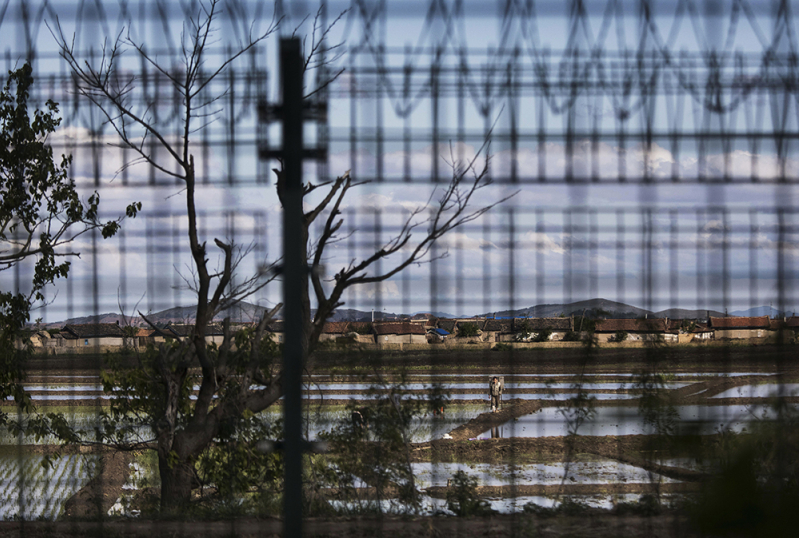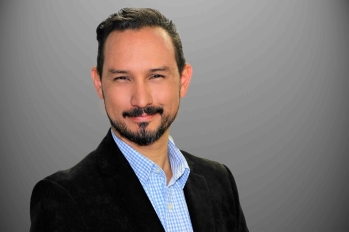
The Database Center for North Korean Human Rights (NKDB) announced the results of its 2024 White Paper on Religious Freedom in North Korea and a public awareness survey on North Korean human rights at the Franciscan Education Center in Seoul’s Jeong-dong on Jan. 23. Rev. Stephen Kim of the Jericho Mission, who has devoted over 30 years to improving awareness of North Korean human rights and rescuing defectors, also shared insights into the current state and direction of missions to North Korea, according to reporting by Christian Daily Korea.
The White Paper on Religious Freedom, published for the first time in four years, is based on responses and investigations of North Korean defectors who have settled in South Korea. It includes data from 15,169 accumulated responses and 2,045 cases of religious persecution. Soo-young Yang, a researcher at NKDB, presented the findings and trends.
Severe religious persecution continues in North Korea
According to the survey, 96.6% of respondents stated that religious activities are "not permitted" in North Korea. When asked if they had secretly participated in religious activities, 98.8% answered "no." Only 4.7% responded "yes" when asked if they had witnessed others engaging in secret religious activities. These secret religious practices encompass not only underground Christian churches but also other faiths, including shamanism.
When asked if they had ever seen religious items such as the Bible, the response rate of "yes" has remained around 5% since 2008. However, in 2023, this rate unexpectedly surged to 55.6%. This dramatic increase is attributed to a smaller sample size due to the sharp decline in defectors entering South Korea after 2020.
Among the types of religious persecution, "religious activities" ranked highest at 64.1%, followed by "possession of religious items" at 17.9%. Religious persecution incidents have significantly increased since the 2000s, linked to the heightened control measures following the "Arduous March" period (1995–2000), during which North Korea faced a severe famine and system collapse.
"While there have been no major changes in the results, the consistent presence of individuals who have participated in or witnessed secret religious activities warrants continued investigation," Yang commented.
She also stressed the need for international pressure by linking discussions on human rights and religious persecution in North Korea. Additionally, measures should be sought to ensure a steady inflow of religious materials into North Korea.
Approximately 40,000 North Korean defectors in China
Rev. Kim then talked about the current state and direction of missions in North Korea. He emphasized the worsening control over North Korean defectors in China after COVID-19, highlighting the need for a paradigm shift in North Korean missions.
"Looking at the history of Christianity's eradication in North Korea, a shift occurred before and after COVID-19. During the pandemic, North Korea achieved complete control, issuing orders to 'shoot anyone or any animal approaching the border.'"
Kim estimated that "there are about 40,000 North Korean defectors in China." He explained that China’s policy toward defectors has significantly changed. Previously, North Koreans often became marriage partners due to the rural impoverishment in China. Over time, however, as their children entered schools, social issues emerged.
With the population decline, China has been preventing defectors from returning to South Korea. Punishments for those caught attempting to go to South Korea have become harsher. Before COVID-19, 765 defectors were brought to South Korea, but now the number has dropped to 192. Costs have increased tenfold, and barriers over 4 meters high have been erected. Some defectors have been stuck in China for over 15 years, and 57 South Korean missionaries have been forcibly taken to China."
(Christian Daily International has previously reported how China is allegedly partnering with North Korea in persecuting Christians.)
Regarding North Korea, Kim explained, "In North Korea, it's now possible to order food delivery via mobile apps. However, internal control remains severe after COVID-19. People are instructed to report even those who clasp their hands or mumble in prayer. Inspection and monitoring have intensified, and the Reactionary Thought and Culture Law has been established."
"The mindset of North Korean people is fundamentally different from ours. For them, the Kim family is seen as 'God.' Just like we have the Bible, they have something akin to a 'Bible' used for regime indoctrination," he added.
On the underground church in North Korea, Kim noted, "There’s a saying that 'those who entered North Korea during the March of Suffering became the church,' but this cannot be confirmed. With data from 20-30 years ago, the existence of underground churches cannot be assured. Many videos and photos claiming to show underground churches are fabricated or false. Nonetheless, I have personally met individuals in North Korea who have faith. Letting go of outdated ideas and adopting accurate research data can usher in a new and honest era of North Korean missions. Despite the grim reality, Christians still remain in North Korea."
65% of South Koreans show interest in human rights in North Korea
Seung-pyo Park, director of the research division at Consumer Insight, announced the results of the 2024 National Perception Survey on North Korean Human Rights, which targeted 1,000 men and women aged 19 and older across the country.
65% of the public expressed interest in North Korean human rights. The most common reason, cited by 33.4% of respondents, was “sympathy for the poverty and suffering of North Korean people.” Regarding the severity of North Korean human rights issues, 96% viewed them as “serious.”
However, when it came to the possibility of improvement, 86.2% responded pessimistically, believing that improvement is "unlikely," showing a growing trend of pessimism. Awareness of the North Korean Human Rights Act, implemented in 2016, along with its achievements and effectiveness, was also evaluated negatively. Despite this, 60.2% of respondents agreed that "the South Korean government should raise the issue of North Korean human rights."
Human rights amid changing circumstances
Seung-yeop Lee, a research analyst at the NKDB, delivered a presentation titled "Evaluating and Forecasting North Korean Human Rights Amid Changing Circumstances." He highlighted the sharp decline in the number of North Korean defectors due to tightened border controls with China during the COVID-19 pandemic. This has significantly limited the ability to secure and verify cases of human rights violations in North Korea.
Additionally, Lee outlined key North Korean human rights issues for this year, including:
-
The dispatch of 10,000 troops to support Russia’s war effort, leading to an increase in prisoners of war.
-
Continued forced repatriation of defectors and border closures by China.
-
Institutional neglect of defectors residing in China.
-
Limitations of international sanctions against North Korea and the impact of former U.S. President Donald Trump’s administration.
-
The forthcoming release of the 4th Universal Periodic Review (UPR) conclusions between February and April.
-
Political events such as the 80th anniversary of the founding of the Workers’ Party of Korea.
Meanwhile, the Database Center for North Korean Human Rights plans to publish reports and host a seminar in September on topics including North Korean laborers and soldiers abroad, as well as those forcibly repatriated by China.
Reassessing North Korean mission strategies, exploring strategic change
During a comprehensive discussion session, Yeo-sang Yoon, director of the North Korean Human Rights Archives, emphasized the need for realistic measures to improve North Korean human rights, particularly from the perspective of the church.
"The Korean church often plans and prays about ‘where to send missions first,’ ‘how many churches to establish,’ and ‘the resources and time required.’ However, these discussions are disconnected from reality," he said.
"Right now, people are being tortured, sent to concentration camps, or publicly executed for religious persecution. This seminar was held not to discuss future missions in North Korea but to raise awareness of the current situation and focus on what we can do now."
Rev. Kim, who has been involved in North Korean missions for over 30 years, commented that "the Korean Christian community has played an undeniably important role, but the modern zeitgeist of 'unification' has been transferred to the church, where it has combined with prosperity theology and dominion theology. This has led to an overestimation of the impact and results of North Korean mission efforts."
"There are only a very small number of Christians in North Korea. The theological foundation and action plans for North Korean missions need to be re-established. Resources and attention must be directed toward defectors remaining in China," he added.
Kim also stressed the importance of engaging proactively with North Korean laborers, saying, "We must create effective points of contact with laborers in China, collaborating with institutions and companies to help transform their lives. Change will not come from the so-called 'jangmadang generation' (the market generation) alone; leadership must also evolve. We need to devise mission strategies that target the working class who act as intermediaries."
Researcher Yang emphasized the need for sustained dialogue channels with North Korea. He proposed collaboration with neutral countries like Switzerland and Sweden, stating: "There are missionaries who have been detained in North Korea for extended periods, and we are currently unable even to confirm whether they are alive. At the very least, efforts must be made to confirm their status. The highest priority should be on international cooperation to ensure their safe return to South Korea."
Original reporting by Christian Daily Korea, translated and edited by Christian Daily International staff.





